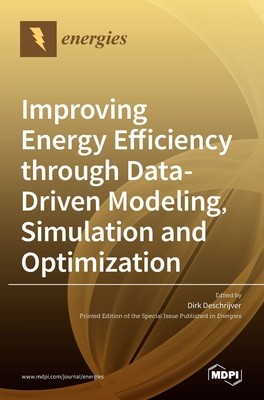
- We will send in 10–14 business days.
- Publisher: MDPI AG
- ISBN-10: 3036512071
- ISBN-13: 9783036512075
- Format: 17 x 24.4 x 1.9 cm, hardcover
- Language: English
- SAVE -10% with code: EXTRA
Improving Energy Efficiency through Data-Driven Modeling, Simulation and Optimization (e-book) (used book) | bookbook.eu
Reviews
Description
In October 2014, the EU leaders agreed upon three key targets for the year 2030: a reduction by at least 40% in greenhouse gas emissions, savings of at least 27% for renewable energy, and improvements by at least 27% in energy efficiency. The increase in computational power combined with advanced modeling and simulation tools makes it possible to derive new technological solutions that can enhance the energy efficiency of systems and that can reduce the ecological footprint. This book compiles 10 novel research works from a Special Issue that was focused on data-driven approaches, machine learning, or artificial intelligence for the modeling, simulation, and optimization of energy systems.
EXTRA 10 % discount with code: EXTRA
The promotion ends in 18d.15:55:39
The discount code is valid when purchasing from 10 €. Discounts do not stack.
- Publisher: MDPI AG
- ISBN-10: 3036512071
- ISBN-13: 9783036512075
- Format: 17 x 24.4 x 1.9 cm, hardcover
- Language: English English
In October 2014, the EU leaders agreed upon three key targets for the year 2030: a reduction by at least 40% in greenhouse gas emissions, savings of at least 27% for renewable energy, and improvements by at least 27% in energy efficiency. The increase in computational power combined with advanced modeling and simulation tools makes it possible to derive new technological solutions that can enhance the energy efficiency of systems and that can reduce the ecological footprint. This book compiles 10 novel research works from a Special Issue that was focused on data-driven approaches, machine learning, or artificial intelligence for the modeling, simulation, and optimization of energy systems.


Reviews